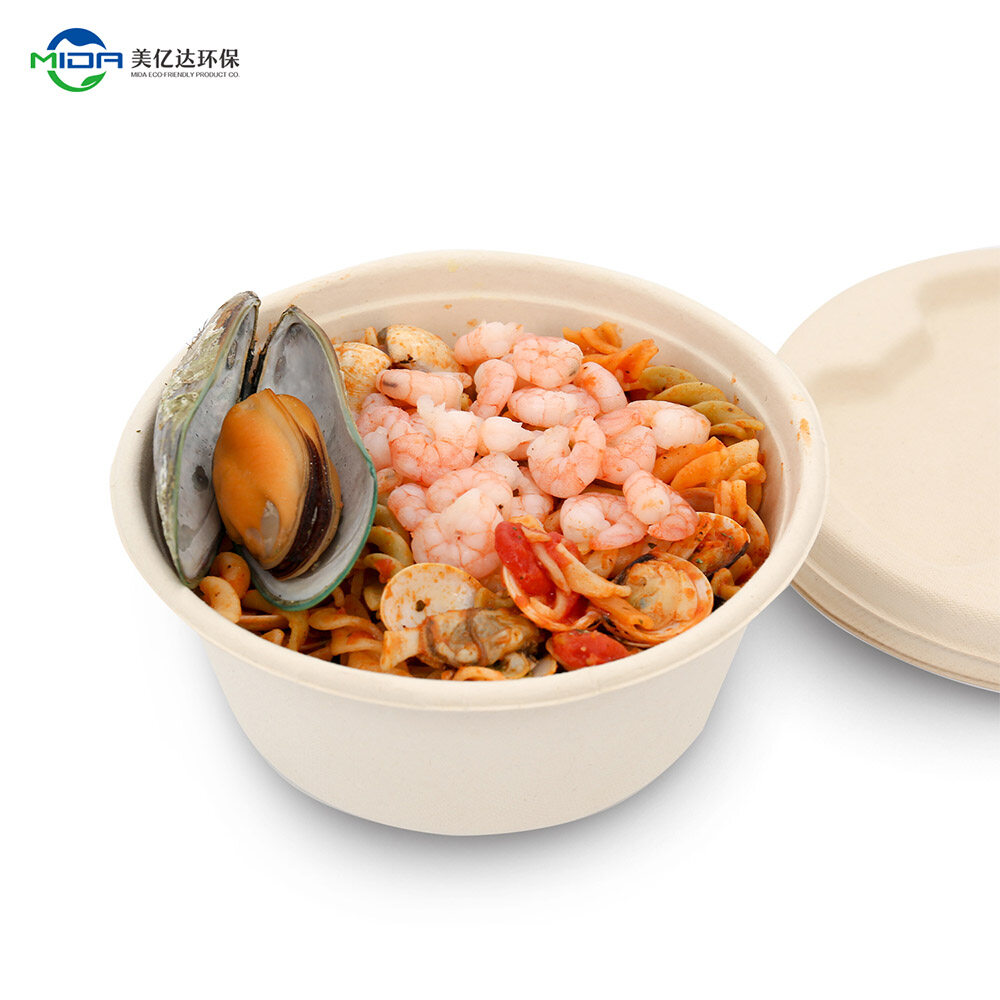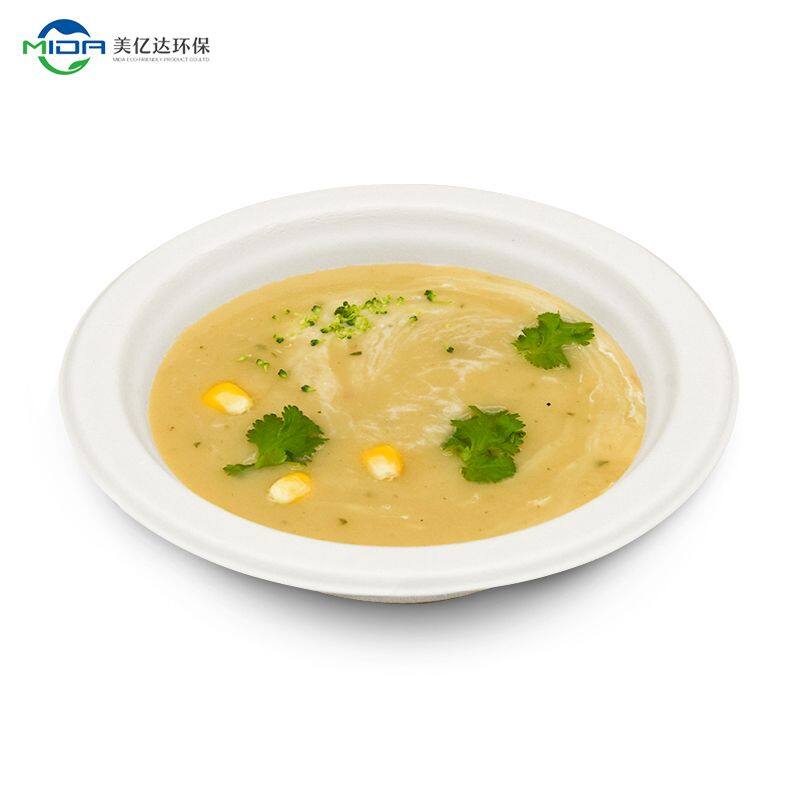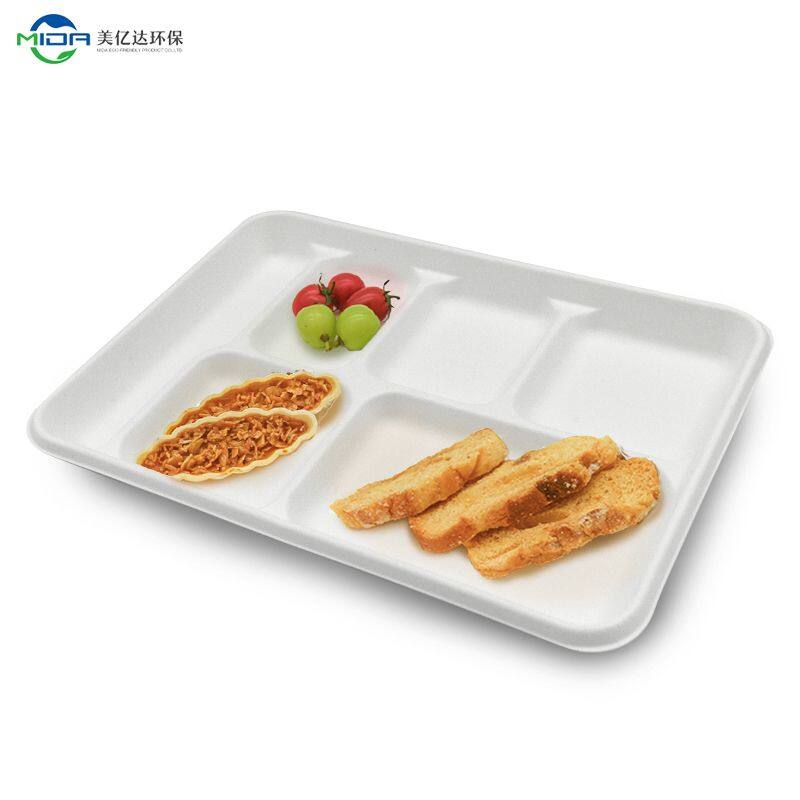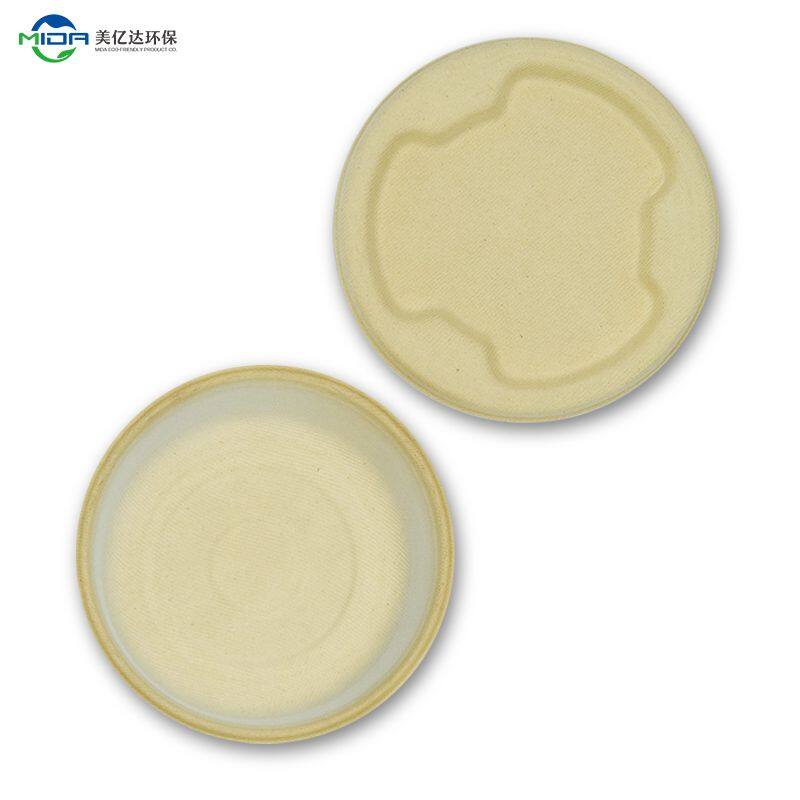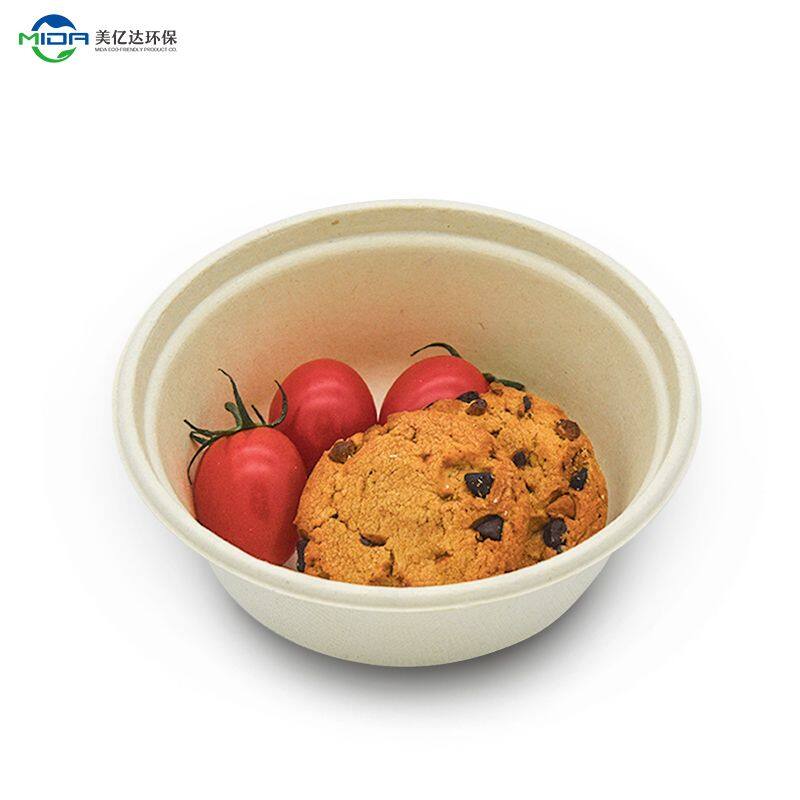In an era defined by environmental consciousness, disposable food containers have come under scrutiny for their adverse impact on the planet. The escalation of single-use plastics and non-biodegradable materials has led to a critical examination of their consequences. Consequently, the rise of biodegradable takeaway food containers is a promising step towards minimizing this ecological footprint.
Understanding Biodegradable Materials
What Makes a Material Biodegradable?
Biodegradability refers to a material's ability to break down naturally into harmless compounds, primarily through the action of microorganisms, under specific conditions. This process mitigates the long-lasting pollution associated with conventional plastics.
Types of Biodegradable Materials
PLA (Polylactic Acid): Derived from renewable resources like cornstarch or sugarcane, PLA is a popular biodegradable material known for its versatility and compostability.
PBAT (Polybutylene Adipate Terephthalate): Combining PBAT with other biodegradable polymers enhances its strength and decomposition properties, making it suitable for various applications.
Starch-Based Bioplastics: Often used in food packaging, starch-based bioplastics are derived from corn, potatoes, or other starch-rich crops, offering biodegradability and eco-friendliness.
Bagasse: Made from sugarcane waste, bagasse containers are not only biodegradable but also compostable, making them a sustainable choice for food packaging.
Edible Packaging: A fascinating innovation, edible packaging is crafted from ingredients like seaweed, rice, or potato starch, providing an entirely edible and biodegradable solution.
Advantages of Biodegradable Takeaway Food Containers
Reduced Carbon Footprint
Biodegradable containers significantly reduce the carbon footprint associated with manufacturing and disposal, as they require fewer fossil fuels in production and produce fewer greenhouse gas emissions during decomposition.
Minimal Resource Depletion
With renewable sources as their base, biodegradable materials decrease the strain on non-renewable resources, aligning with the principles of sustainability.
Lower Environmental Pollution
Unlike conventional plastics that persist for centuries, biodegradable containers disintegrate naturally, preventing soil and water pollution.
biodegradable takeaway food containers
Versatility in Applications
Biodegradable food containers are adaptable and can cater to various culinary needs, from hot soups to cold salads, without compromising on functionality.
Challenges and Considerations
Cost and Availability
The production of biodegradable materials can be costlier than conventional plastics, making their widespread adoption contingent on affordability and market availability.
Proper Disposal and Decomposition
For biodegradable containers to fulfill their potential, they must be disposed of in environments conducive to decomposition, such as industrial composting facilities.
Durability and Performance
Balancing biodegradability with the durability needed for takeaway food containers can pose challenges, as they must withstand various environmental conditions and transportation.
Regulatory Compliance
Effective regulations are essential to ensure that biodegradable materials meet defined standards and maintain their eco-friendly attributes throughout their lifecycle.
The Future of Sustainable Food Packaging
Innovations in Biodegradable Packaging
Continuous research and development efforts are driving innovation in biodegradable packaging, promising even more efficient and sustainable solutions.
Consumer Awareness and Preference
As consumers become more environmentally conscious, the demand for biodegradable takeaway food containers is expected to rise, encouraging businesses to prioritize sustainability.
Collaborative Efforts Towards Sustainability
Industry collaborations and partnerships between businesses, governments, and environmental organizations are crucial for accelerating the transition to sustainable packaging.
Sustainable Business Practices
The adoption of sustainable business practices, including responsible sourcing of materials and waste reduction strategies, will play a pivotal role in the broader sustainability movement.
Conclusion
Biodegradable takeaway food containers represent a promising solution to mitigate the environmental impact of disposable food packaging. Understanding their composition, advantages, challenges, and future prospects is essential for individuals, businesses, and policymakers alike as we collectively strive for a more sustainable future.



